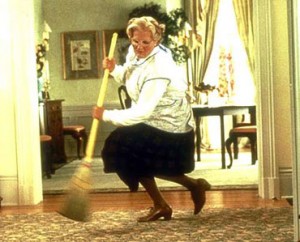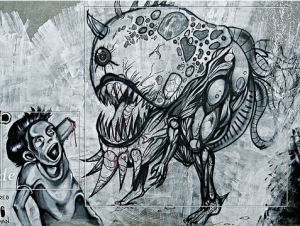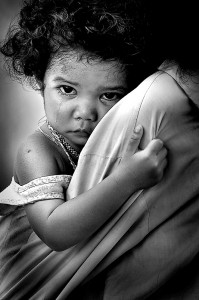 A UK report published last week offered details about how Dr. Andrew Wakefield falsified his 1998 report linking autism to certain childhood vaccines. The fraudulent study launched more than a decade of misinformation and anxiety surrounding routine vaccinations. Wakefield has been of particular interest to me ever since my daughter’s pediatrician in New York had to be quarantined for a week last year because some unvaccinated child came into the office with German Measles (a disease that vaccines had nearly eliminated in the developed world). Author Seth Mnookin’s exquisitely timed book about Wakefield’s fraud and the campaigns it inspired, The Panic Virus: A True Story of Medicine, Science, and Fear
A UK report published last week offered details about how Dr. Andrew Wakefield falsified his 1998 report linking autism to certain childhood vaccines. The fraudulent study launched more than a decade of misinformation and anxiety surrounding routine vaccinations. Wakefield has been of particular interest to me ever since my daughter’s pediatrician in New York had to be quarantined for a week last year because some unvaccinated child came into the office with German Measles (a disease that vaccines had nearly eliminated in the developed world). Author Seth Mnookin’s exquisitely timed book about Wakefield’s fraud and the campaigns it inspired, The Panic Virus: A True Story of Medicine, Science, and Fear, comes out this week. Mnookin spoke with DadWagon about fraud, misinformation, and the fallout of Wakefield’s disastrous hoax.
Q: What’s different about the news on Wakefield this week? Hasn’t he already been discredited?
A: There’s very little here that’s actually new about this report. Regardless of why the research didn’t hold up, we’ve known for years and years that it didn’t hold up. We knew it last year when Wakefield was stripped of his medical license in the UK, and years earlier when ten coauthors of the original report issued a retraction.
What this week exemplifies more than anything is that this story keeps playing out in the press in a way that can’t help but raise parents’ fears. Every article seems to plant at least some seed of doubt that maybe [the link between autism and vaccines] is an issue. The analogy for this new report is like learning that a football score wasn’t 72-0, it was 99-0. Either way, it was no contest.
Q. How has the anti-vaccine community, which you got to know in depth while reporting The Panic Virus, been reacting to the latest news?
A: A large part of the community that feels most strongly that vaccines have damaged their children are parents whose children are very sick. They are familes who’ve dealt with an enormous amount, and often don’t get the support they need. That’s often lost in the debate.
So it’s very understandable to me that if you have subscribed to [the theory that vaccines cause autism] for a while, this news is not got going to matter much. You see that reaction this week: new information is, for many of them, just part of a huge conspiracy between the media, government, and drug companies.
This new report is an issue because the vast majority of people do not fall into one of the two camps, those who are against the vaccines and those who are for them. There’s a kind of great middle that is somewhat undecided. That’s one of the reasons why I find this new accusation of “fraud” troubling: it reintroduces this as a controversy. The irony is that the more it’s talked about, the more people are going think that it’s still an issue.
Q: Wakefield, we now know, falsified data and then made a handsome living testifying in class-action lawsuits against vaccine makers based on his false study. In researching your book, did you get a sense that he planned to profit that way?
A: I found that it’s impossible for me to speculate as to motives. We know that prior to his initial paper being published, he had a patent for an alternate measles vaccine that could theoretically replace the MMR. While he was working on the paper, he also had a working relationship with a law firm that was working on a class-action lawsuit [and] a lot of people he was working with were not aware of those relationships.
Q: I’ve been fantasizing about criminal charges for Wakefield because of all the children who became ill after not getting vaccinated–manslaughter, perhaps? Will we ever see charges filed?
A: It’s true that this is different from almost any other medical issue. Chiropractors are controversial as well. But I go to one and that’s my choice. No one else is harmed. With the vaccine debate, we’re seeing that more and more as more children are getting sick and they’re dying. I think we’re not far from the point at which we start having real discussions about consequences for people who don’t vaccinate and end up bringing in disease. I don’t have a background in the law, of course, but I do think the conversation is going to pivot in that direction.
Q: Your book has been praised for showing the larger context to the anti-vaccine movement. Why is misinformation so persistent these days?
A: When I started researching this book, I thought, the science is so clear. This should be straightforward. But there is incredible controversy there. We see controversies all the time in society about things over which there should be no debate. Obama is not a Muslim. He was not born in Kenya. George W. Bush did not plan 9/11.
But still, you can surround yourself with those views if you want. The cumulative effect of that makes you more and more convinced that it’s true. The boundary between what is real, and what you feel is real, is porous.
Q: Finally, where should parents go for the correct information about vaccines and autism?
A: One of the big problems at the outset was that the public health community was incredibly inept about informing the public a decade or more ago. Now, the CDC’s website has an enormous amount of resources about every type of vaccine and deals with the main arguments against them.
I also think that if you’re a parent and if you don’t trust your pediatrician enough to have a conversation and take their advice about this, you need to find another pediatrician. You entrust your kid’s life to this person.
What parents should not do is go online and type in “autism vaccines” or go to parents’ chat rooms. If you Google “headache brain tumor“, you will come away convinced that your headache is actually cancer. It’s the same with searching for information on autism-vaccine links.
You should think about your information diet and understand that not all information is equal. That’s really one of the things that I hope my book can offer. Parents can’t spend two years looking into this, obviously, like I was able to. I’m not a scientist. I’m not a doctor. I don’t know anyone who works for a drug company, I don’t have a family member who has autism. I hope people can look at this book as an independent voice.
Seth Mnookin blogs at http://thepanicvirus.com. You can follow him on Twitter @sethmnookin.



